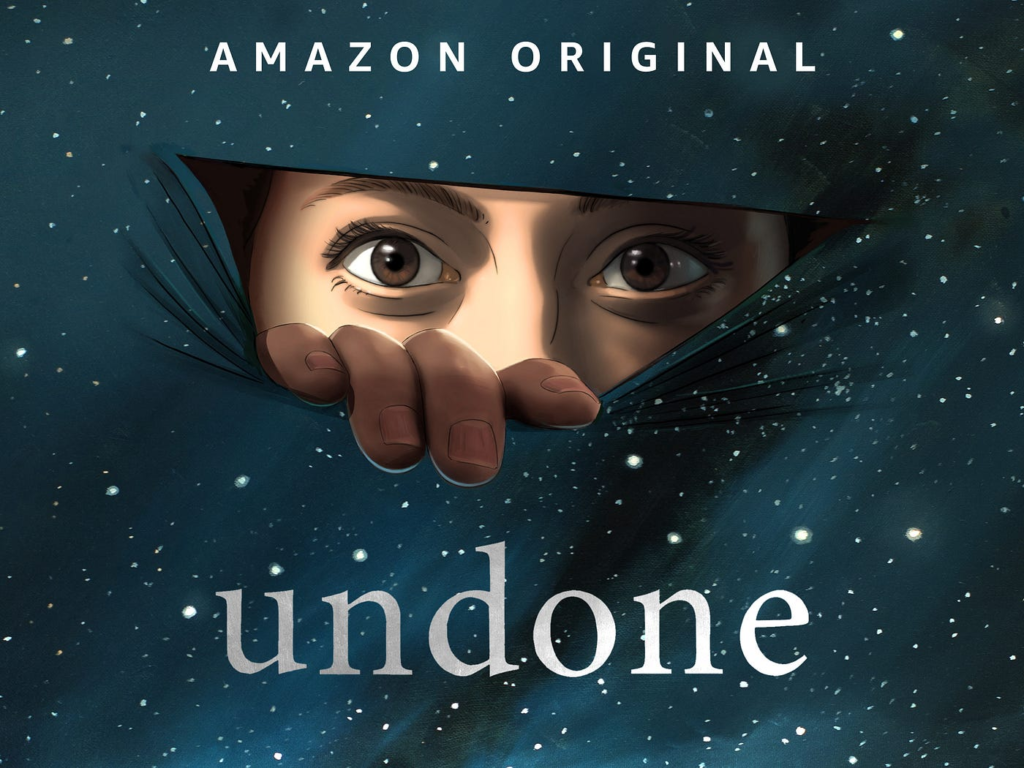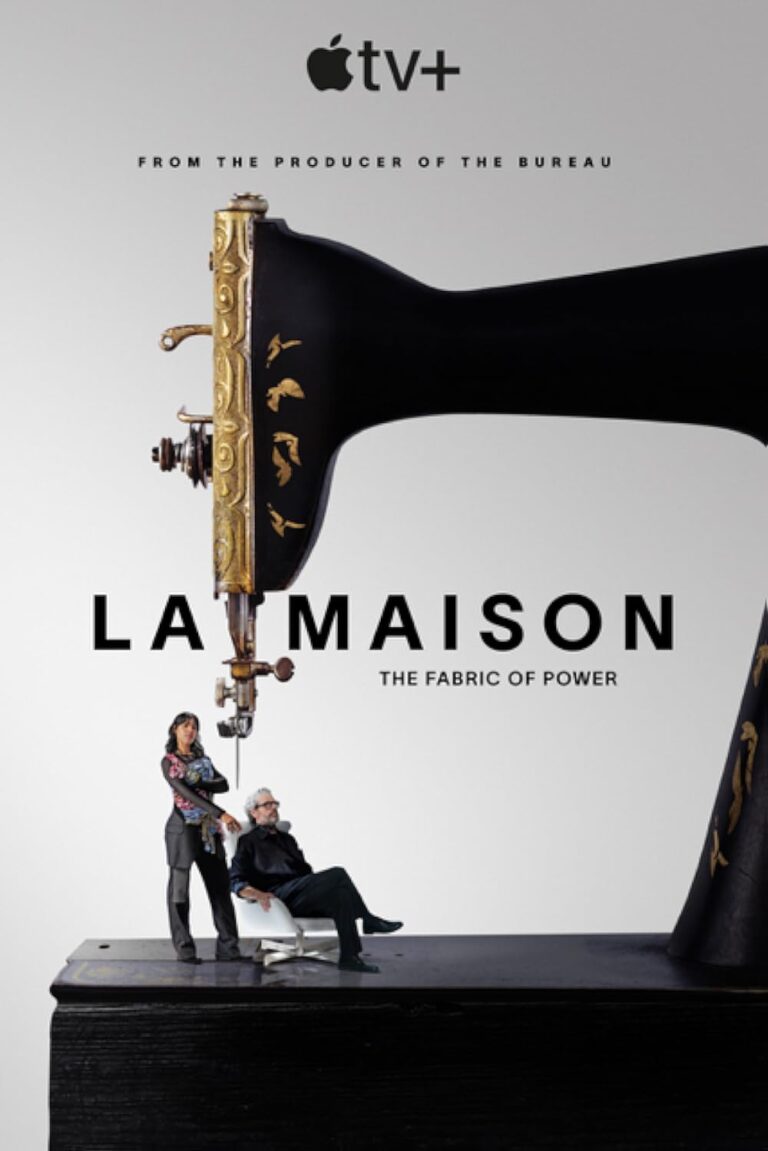Undone Christian Review

There are TV shows, and then there are experiences. Undone fits into the latter category—an animated series that almost transcends the format, pulling you into a world that feels at once alien and intimately familiar. The story and the visuals fuse in a way that’s more akin to a dream than a show you’re merely “watching.” From the moment you hit play, it’s like you’ve stepped into Alma’s fractured reality, where time is a winding loop, memories bleed into the present, and you’re never quite sure what’s real and what’s just a manifestation of a tortured mind. That’s Undone—a meticulously crafted narrative that’s as unsettling as it is beautiful, as heartbreaking as it is hopeful.
But let’s take a step back. What is Undone, exactly? It’s a series created by Raphael Bob-Waksberg and Kate Purdy, starring Rosa Salazar as Alma, a young woman living in San Antonio, Texas. Alma’s life is unremarkable—working a dead-end job, going through the motions of a relationship that feels stuck in neutral—until a car accident changes everything. After a brush with death, she begins to experience time in a way that defies comprehension, guided by the specter of her dead father, Jacob (Bob Odenkirk), who tells her she can alter the past and, perhaps, change the future. The result is a hybrid of genres that’s part psychological thriller, part family drama, and part metaphysical exploration of life and loss. And it all plays out in a visual style that’s unlike anything else on TV.
The Artistry of Undone: A Visually Breathtaking Experience
Let’s talk about that style for a minute. Most animated series these days lean into the slick, the polished, and the cartoony. Undone goes in the opposite direction, using rotoscoping—a technique where live-action footage is traced over frame by frame—to create an uncanny, dreamlike quality that’s impossible to ignore. The backgrounds are lush, impressionistic oil paintings, while the characters, though rendered with meticulous detail, have a slippery, ethereal quality to their movements. You watch them speak, walk, cry, rage—but they never quite look real. And yet, in a strange way, they feel more alive than most animated figures do.
There’s a method to this madness. The show’s creators have spoken about how they wanted to use the animation style to mirror the instability of Alma’s world, where reality bends and warps depending on her state of mind. The effect is mesmerizing. One moment you’re in Alma’s mundane apartment, the next you’re watching her fall through a vortex of memories, shifting through time and space like Alice tumbling down the rabbit hole. And all the while, you’re never entirely sure whether what you’re seeing is actually happening, or if it’s just a manifestation of Alma’s trauma, her pain, her unresolved grief. But that’s the genius of Undone: it blurs the line between reality and imagination so thoroughly that you find yourself questioning everything, even your own perception.
Trauma in Technicolor: A Story of Healing and Haunting
Of course, Undone is more than just a visual marvel. At its core, it’s a story about trauma—specifically, about the way trauma can ripple through families, shaping the lives of everyone it touches. Alma’s quest to uncover the truth about her father’s death is really a metaphor for something much deeper: her struggle to come to terms with her own mental illness, and with the ways in which her family’s history of instability has marked her. Her visions of Jacob—whether they’re real or just hallucinations—aren’t just about solving a mystery. They’re about understanding herself.
The second season delves even further into this theme, expanding the narrative to include Alma’s sister, Becca, and her mother, Camila. Each of these women is haunted, in her own way, by the choices and traumas of the past. Alma’s story becomes a shared journey—a painful but ultimately redemptive attempt to break free from the cycles of pain and dysfunction that have bound their family for generations. It’s heavy stuff, and Undone doesn’t shy away from the darkness. But it also finds beauty in the struggle, in the way Alma and her family learn to confront their ghosts and, slowly, begin to heal.
A Christian Perspective: Wrestling with Faith and Doubt
As a Christian viewer, Undone presents a fascinating, if sometimes troubling, picture of faith, doubt, and the search for meaning. The show doesn’t deal explicitly with religion—there are no sermons here, no overt discussions of God or the afterlife. But it grapples deeply with questions that are central to the Christian experience: What is the nature of reality? Can we change the past, or are we bound by the sins and mistakes of our ancestors? And, perhaps most poignantly, how do we find peace in a world that seems irreparably broken?
Alma’s journey is, in many ways, a secular quest for redemption. She wants to rewrite history, to undo the pain that has shaped her life and the lives of those she loves. But as Christians, we know that true redemption comes not through our own efforts, but through the grace of Christ. Alma’s story, for all its beauty and power, ultimately points to the limits of human striving. She can’t fix everything. She can’t heal her family’s wounds, or erase the scars of the past. But she can learn to live with them. And there’s a kind of grace in that acceptance—in the willingness to confront the brokenness of the world and to choose love and hope in spite of it.
The Good, the Flawed, and the Unforgettable
Does Undone get everything right? No. There are moments when the narrative becomes so convoluted that it risks collapsing under its own weight. The pacing, particularly in the second season, can be frustratingly slow, and the ending leaves a lot of questions unanswered. But those imperfections are part of what makes the show so compelling. Like its protagonist, Undone is messy, complicated, and sometimes hard to pin down. It’s a show that doesn’t offer easy answers or neat resolutions. But it’s also one that refuses to look away from the hard truths of life, or to sugarcoat the pain of living in a broken world.
If you’re looking for a show that will challenge you, frustrate you, and move you in equal measure, Undone is worth a watch. Just be prepared to have your expectations upended. This is a series that demands your full attention, that asks you to sit with its ambiguity and wrestle with its themes. But if you’re willing to take the plunge, it’s a deeply rewarding experience—one that will stay with you long after the final credits roll.
Final Verdict: 8.5/10
For its breathtaking visuals, emotionally resonant storytelling, and willingness to tackle difficult themes with nuance and sensitivity, Undone earns a solid 8.5 out of 10. It’s not a show for everyone—its slow pace and surreal style may put off some viewers—but for those who are willing to embrace its unique vision, it offers a rich, haunting, and ultimately hopeful exploration of what it means to live, to love, and to heal.
If you’re in the mood for a series that will challenge your perceptions and tug at your heartstrings, give Undone a try. Just be prepared to get a little lost along the way. After all, sometimes the only way to find yourself is to come undone.







